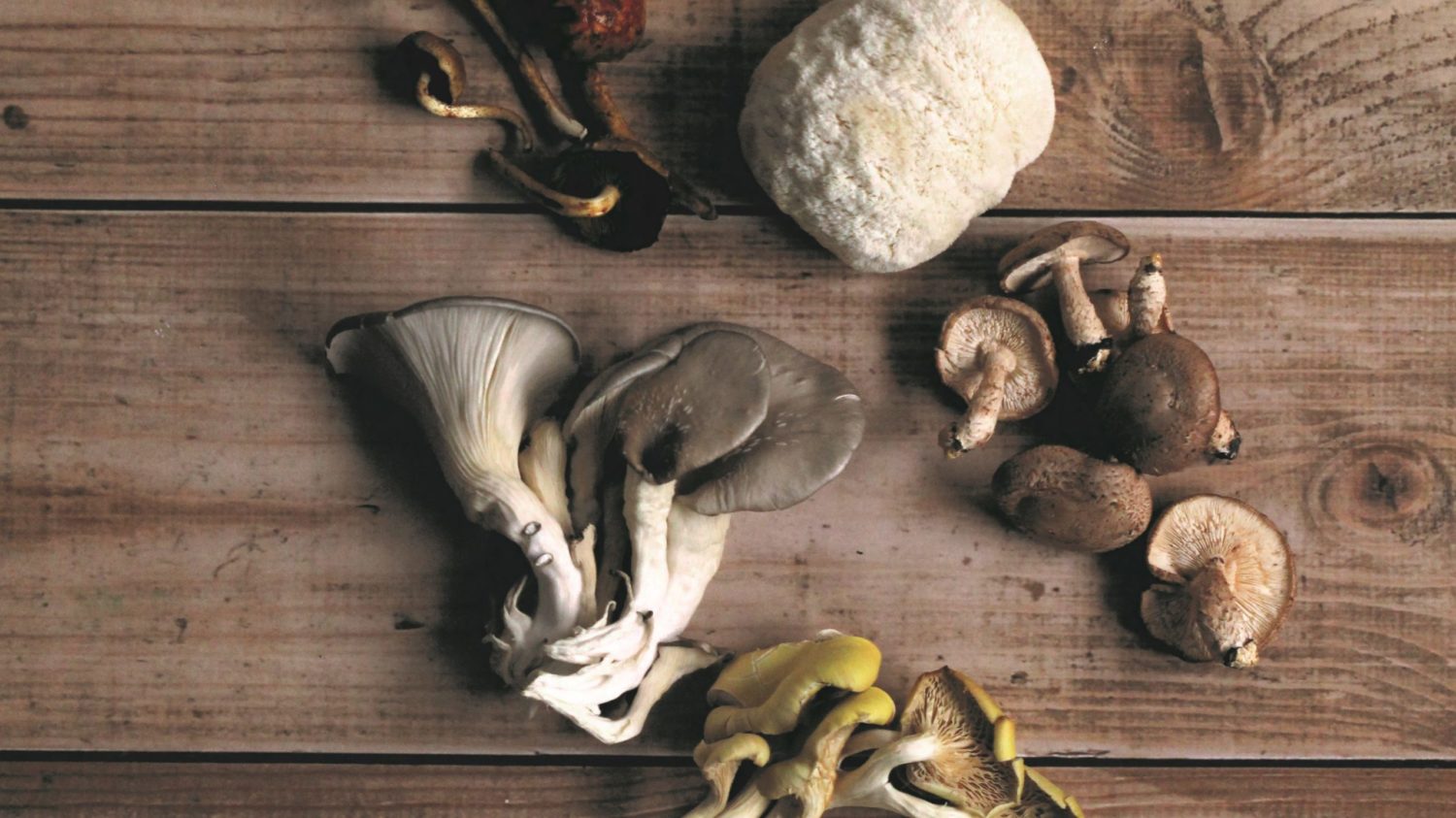
Explore the many tastes, textures, and health benefits of these versatile gourmet mushrooms from Northwood Mushrooms (Clayton, Wisc.) and R&R Cultivation (Twin Cities, Minn.).
Shiitake
One of the most popular mushrooms worldwide, Shiitakes are prized for their rich, savory taste and nutritional advantages.
Health Benefits – According to health and wellness brand Healthline Media, compounds found in Shiitake may help fight cancer, boost immunity, and support heart health. Shiitakes are low in calories and offer good amounts of fiber, minerals, and multiple B vitamins. They also contain many of the same beneficial amino acids as meat.
Blue Oyster
Compared to the well-known Shiitake, oyster mushrooms have a milder flavor, a more tender consistency, and a sweet, woodsy taste. The blue-grey variety is known for its ability to grow better in cool climates than many other mushroom types. For a firmer texture, cook oyster mushrooms until crisp.
Health Benefits – According to a study published in the peer-reviewed scientific journal Food Chemistry, blue oyster mushrooms contain significant levels of zinc, iron, potassium, calcium, phosphorus, vitamin C, folic acid, niacin, and vitamins B1 and B2.
Golden Oyster
Also known as yellow oysters, these easy-to-grow mushrooms are native to eastern Russia, northern China, and Japan. When cooked to a slightly crisp texture, they develop a nutty, cashew-like flavor.
Health Benefits – Similar to blue oysters, golden oyster mushrooms also contain significant levels of zinc, iron, potassium, calcium, phosphorus, vitamin C, folic acid, niacin, and vitamins B1 and B2.
Lion’s Mane
These fuzzy-looking mushrooms grow in large, bulbous clusters and are native to North America, Europe, and Asia. They have a soft, shaggy texture and a beautiful earthy smell. When cooked, their unique texture becomes similar to that of meat, making them a wonderful plant-based substitute in many dishes. When sautéed, the texture of lion’s mane transforms and becomes richly succulent, reminiscent of crab or lobster.
Health Benefits – According to Healthline Media, lion’s mane mushrooms contain powerful antioxidant and anti-inflammatory compounds that may help reduce the impact of chronic illnesses, including Alzheimer’s disease.
Chestnut
Chestnut mushrooms, also called Cinnamon Cap mushrooms, do not have a distinctive aroma. Similar in appearance to white button mushrooms, these tan-colored mushrooms have a mild, earthy, nutty taste. Chestnut mushrooms retain their firm, crisp texture when cooked.
Health Benefits – Chestnut mushrooms contain many beneficial vitamins, phytochemicals, and minerals, including copper and vitamin B5.

